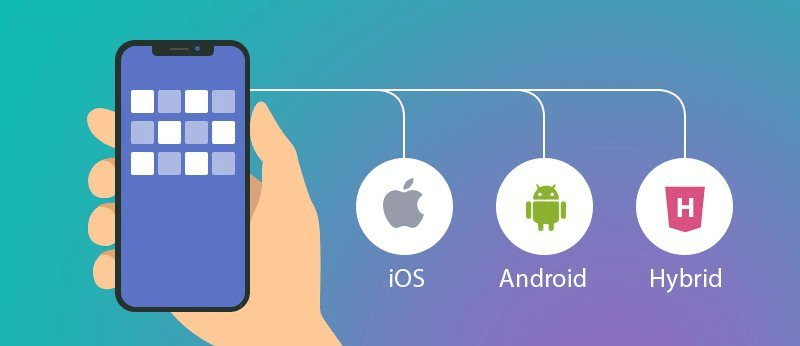In today’s digital age, mobile applications have become indispensable tools for businesses looking to engage their customers effectively. Hybrid app development, also known as cross-platform mobile development, has emerged as a popular solution for companies aiming to reach a wider audience while optimizing development costs. At its core, hybrid app development combines elements of both native and web applications, offering a versatile approach to building mobile apps that can run seamlessly across multiple platforms.
What is Hybrid App Development?
Hybrid app development, in essence, blends the best of both native and web applications. It utilizes web technologies like HTML, CSS, and JavaScript to create a single codebase that can be deployed across various mobile operating systems such as iOS and Android. This approach allows developers to write code once and deploy it across multiple platforms, significantly reducing development time and costs compared to building separate native apps for each platform.
The Role of GRMBPO in Hybrid App Development
GRMBPO, a leading provider in the digital solutions industry, specializes in marketing, supplying, and selling hybrid app development services online. Their expertise lies in offering comprehensive solutions that cater to the diverse needs of businesses looking to harness the power of mobile technology. By leveraging GRMBPO’s services, companies can streamline their app development process and ensure their applications are optimized for performance and user experience across different devices and platforms.
Advantages of Hybrid App Development
Cost-Effectiveness and Time Efficiency
One of the primary advantages of hybrid app development is its cost-effectiveness. By maintaining a single codebase, businesses can save both time and money on development and maintenance. Updates and bug fixes can be implemented swiftly across all platforms, ensuring consistent performance and functionality for users.
Cross-Platform Compatibility
Unlike native apps that are developed separately for each platform, hybrid apps can run on both iOS and Android with minimal modifications. This cross-platform compatibility allows businesses to reach a broader audience without having to allocate resources to multiple development teams or projects.
Offline Functionality and Access to Device Features
Hybrid apps can utilize device capabilities such as GPS, camera, and storage, similar to native apps. They can also offer offline functionality by caching certain data, which enhances user experience in environments with limited or no connectivity.
Simplified Maintenance and Updates
With a single codebase, maintenance becomes more straightforward as updates can be rolled out uniformly across all platforms. This ensures that users receive the latest features and improvements simultaneously, regardless of their device’s operating system.
Challenges in Hybrid App Development
While hybrid app development offers numerous benefits, it also presents challenges that developers and businesses must consider:
Performance Optimization
Ensuring consistent performance across different devices and operating systems can be challenging. Developers need to optimize code and streamline functionalities to deliver a seamless user experience.
Limited Native Functionality Access
Although hybrid apps can access device features, they may not offer the same level of performance or integration as native apps, especially for complex functionalities or high-performance tasks.
Dependency on Third-Party Frameworks
Hybrid app development often relies on frameworks like React Native or Flutter. While these frameworks provide cross-platform capabilities, businesses must stay updated with their maintenance and compatibility with new OS updates.
Future Trends in Hybrid App Development
Looking ahead, the future of hybrid app development appears promising with advancements in technology and frameworks. Emerging trends such as progressive web apps (PWAs) and improved cross-platform frameworks are set to enhance the capabilities and performance of hybrid apps further. Businesses can expect more seamless integrations, enhanced user experiences, and broader device support in the years to come.
Conclusion
In conclusion, hybrid app development offers a compelling solution for businesses aiming to maximize their reach and efficiency in the mobile app market. By leveraging cross-platform capabilities and combining the strengths of native and web technologies, companies can create robust applications that cater to diverse user preferences and operational requirements. As technology continues to evolve, staying updated with the latest trends and frameworks will be crucial for businesses looking to maintain a competitive edge in the digital landscape.
Whether you’re a startup looking to launch your first mobile app or an established enterprise seeking to optimize your development resources, exploring hybrid app development with GRMBPO can unlock new opportunities for growth and innovation in your digital strategy.

